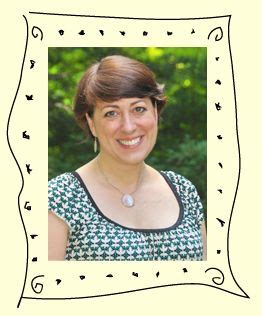A Quote by Walter Pater
A book, like a person, has its fortunes with one; is lucky or unlucky in the precise moment of its falling in our way, and often by some happy accident counts with us for something more than its independent value.
Related Quotes
It's not like we were forced to do something we didn't want to do. I mean, when you see that scene you'll realize that we're really lucky that the weather came at us because now it has a lot more meaning that wasn't automatically there. There's some sort of undertones that wouldn't have existed had we shot it outside. So we got lucky on that and what we try to do is take whatever obstacles come our way and make them work in our favor.
If the book we are reading does not wake us, as with a fist hammering on our skull, why then do we read? So that it shall make us happy? Good God, we should also be happy if we had no books, and such books as make us happy we could, if need be, write ourselves. But what we must have are those books which come upon us like ill fortune, and distress us deeply, like the death of one we love better than ourselves; like suicide. A book must be an ice-axe to break the sea frozen inside us.
Poets often describe love as an emotion that we can't control, one that overwhelms logic and common sense. That's what it was like for me. I didn't plan on falling in love with you, and I doubt if you planned on falling in love with me. But once we met, it was clear that neither of us could control what was happening to us. We fell in love, despite our differences, and once we did, something rare and beautiful was created. For me, love like that has happened only once, and that's why every minute we spent together has been seared in my memory. I'll never forget a single moment of it.
We are, finally, all wanderers in search of knowledge. Most of us hold the dream of becoming something better than we are, something larger, richer, in some way more important to the world and ourselves. Too often, the way taken is the wrong way, with too much emphasis on what we want to have, rather than what we wish to become.
We can cooperate more easily with those who more easily intelligible to us, who are more familiar to us. But the advantages of specialization of labor often push us in the direction working with people who have different strengths and viewpoints than we do. I think that this is one major reason why moralities are always subject to change, because some of the people we cooperate with are going to be different from us in ways that often lead them to have different value orientations than we have; and interacting with them can change us.
In many ways the book [Saving Calvinism] is trying to argue for a more popular audience things I've said in some more scholarly works, namely, that the Reformed tradition is broader and more variegated than is often reported today, and that we need to recapture something of this in order that we don't end up unnecessarily narrow in our doctrine and in order to keep some perspective.
Liberals tend to understand that a person can be lucky or unlucky in all matters relevant to his success. Conservatives, however, often make a religious fetish of individualism. Many seem to have absolutely no awareness of how fortunate one must be to succeed at anything in life, no matter how hard one works. One must be lucky to be able to work. One must be lucky to be intelligent, physically healthy, and not bankrupted in middle age by the illness of a spouse.
God wants us to be stronger than we are--more fixed in our purpose, more certain of our commitments, eventually needing less coddling from Him, showing more willingness to shoulder some of the burden of His heavy load. In short, He wants us to be more like He is and, if you haven't noticed, some of us are not like that yet.




































